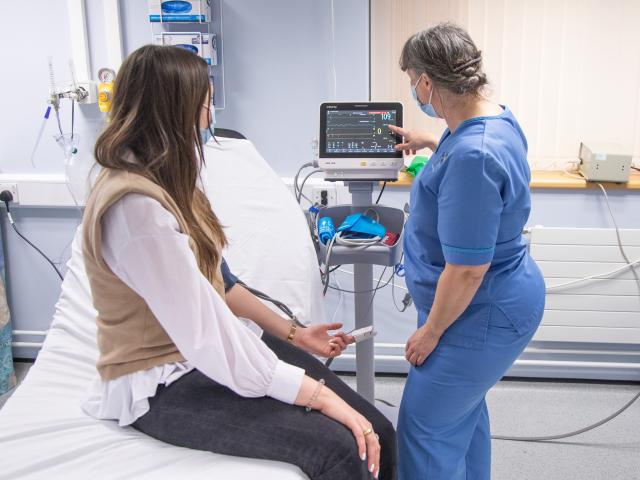
Wales champions women’s health and social care research
This International Women’s Day (8 March) we’re celebrating the incredible research happening across Wales aiming to improve the lives of women and girls.
To tackle some of the biggest health and social care challenges facing women, talented researchers and inspirational volunteers are working hard to develop better treatments and care for diseases like breast cancer and COVID-19.
Here are just some of the ways Wales is championing research for women:
Helping women beat breast cancer
In 2002, research nurses in Swansea recruited patients into an international clinical trial, to find out whether a new drug, called Herceptin, could help women with breast cancer live longer.
This trial transformed survival rates for women with HER2-positive breast cancer, today more than 8 out of 10 patients survive more than 10 years from diagnosis thanks to this life-changing research.
Kim Shears, who took part in this study in Wales, was diagnosed over 20 years ago. She said: “I just feel privileged to have had the drug – the wonder drug. I believe it made a big difference to my survival.
“I also feel really proud that by taking part in the study I’ve hopefully been able to help other people.”
Providing safe and effective COVID-19 vaccines during pregnancy
In 2021, a summary of research evidence from the Wales COVID-19 Evidence Centre found women who contract COVID-19 during pregnancy are at an increased risk of becoming severely unwell. They are also more likely to have pregnancy complications such as premature delivery or stillbirth.
However, this vital work also found COVID-19 vaccines to be safe and effective when given at any time during pregnancy and whilst breastfeeding. More than 200,000 people across the UK and USA received COVID-19 vaccines whilst pregnant, with no evidence to suggest the vaccination causes harm to the unborn child, has an effect on fertility or poses a risk to the baby whilst breastfeeding.
Addressing inequalities during the pandemic
During the pandemic women, particularly those of Black, Asian and minority ethnic backgrounds, were at an increased risk of physical abuse, had reduced access to jobs and education and experienced poor health and wellbeing.
Through their review of the research evidence, the Wales COVID-19 Evidence Centre was able to provide vital input into Welsh Government’s renewed Action Plan to tackle gender inequalities.
The plan addresses inequalities faced by women and girls and sets out Welsh Government’s ambition for greater gender equality in Wales.
Reducing major bleeding after childbirth
Last year a Welsh health improvement project from Obstetric Bleeding Strategy (OBS) Cymru which resulted in 160 women per year avoiding the need for a blood transfusion after giving birth changed postpartum haemorrhage guidelines in Wales.
The project reduced harm from postpartum haemorrhage through the use of a new checklist requiring midwives to measure blood loss throughout childbirth. This process means midwives know as soon as a patient is bleeding abnormally.
Keep up to date with all the latest health and care research happening in Wales by signing up to our newsletter.